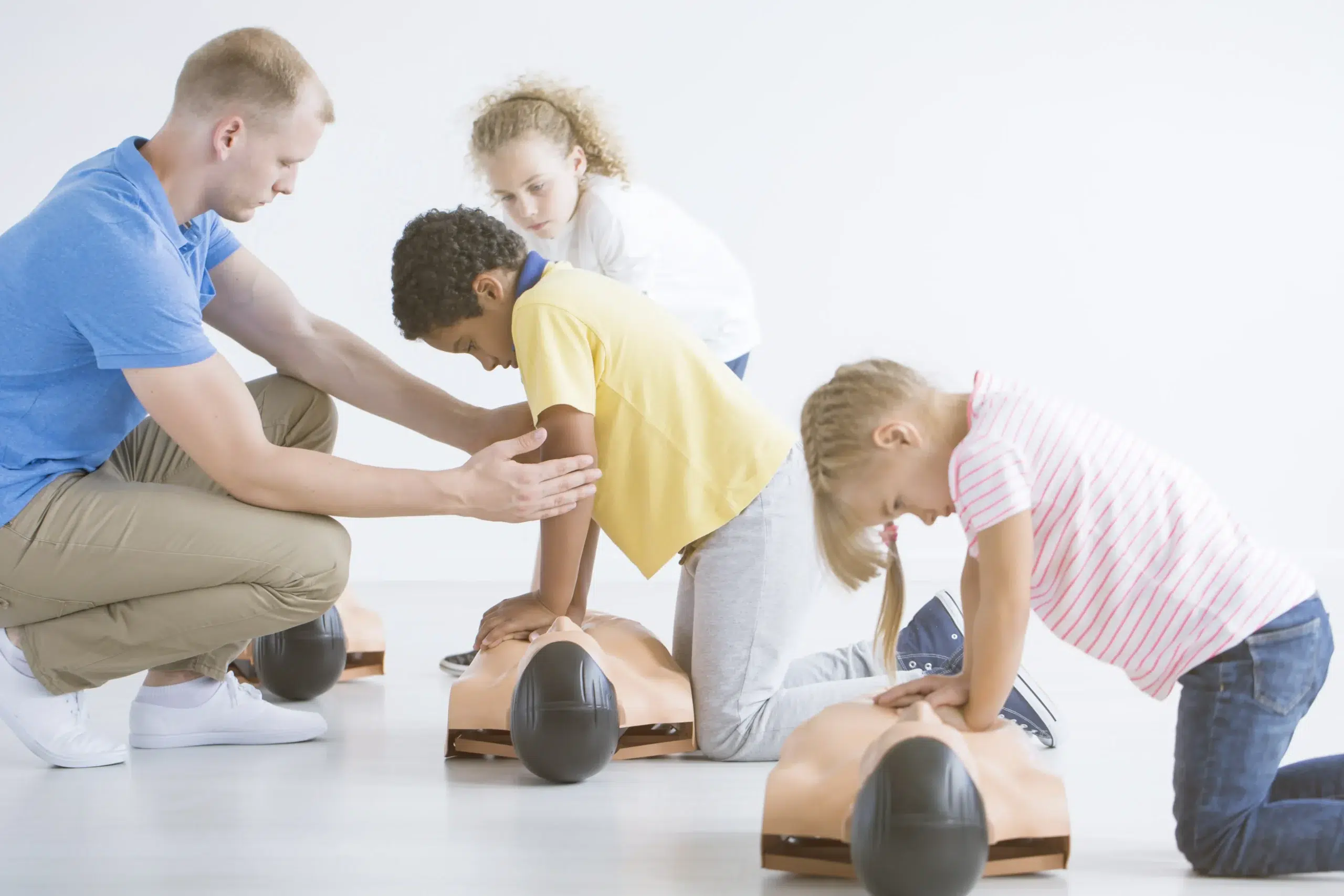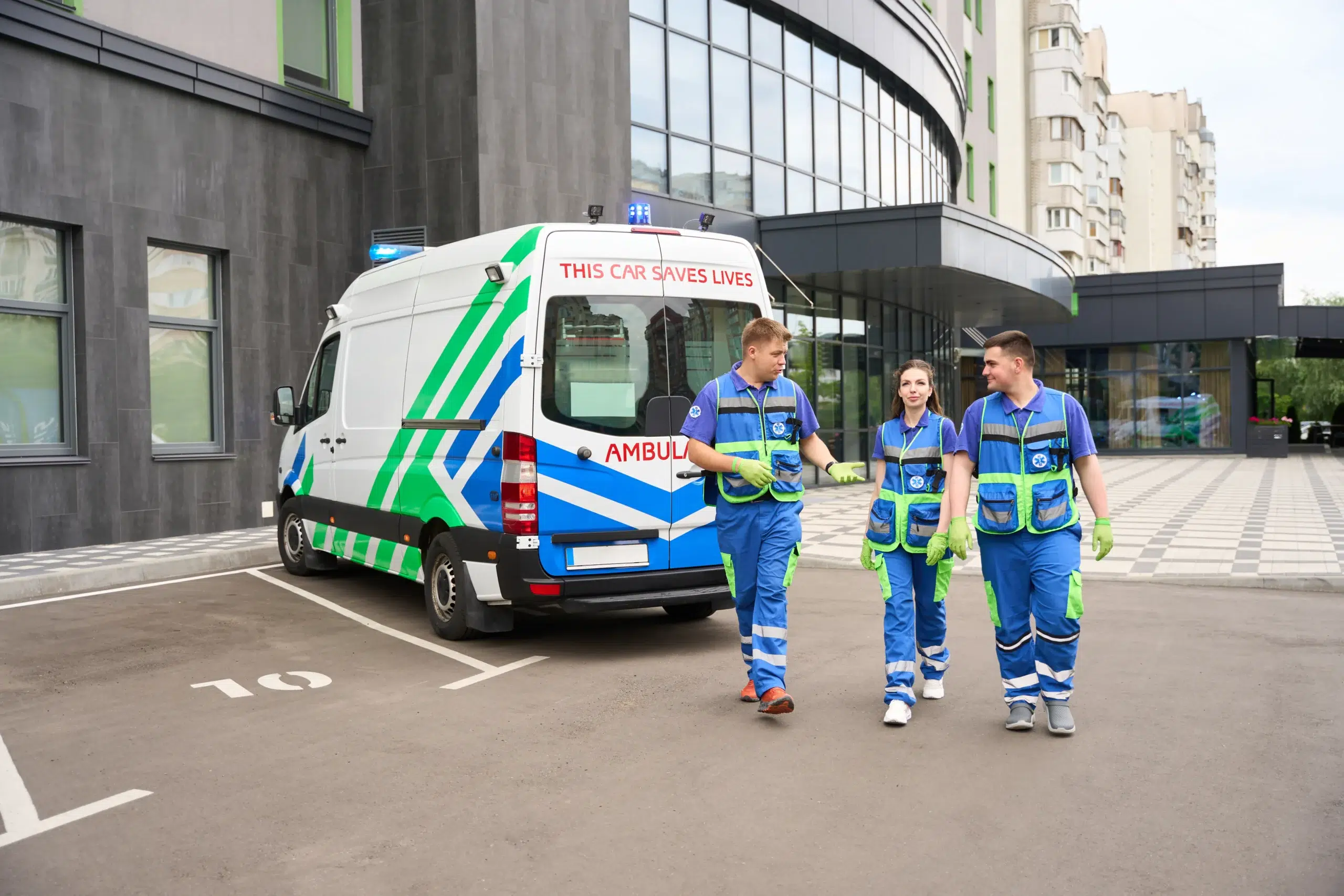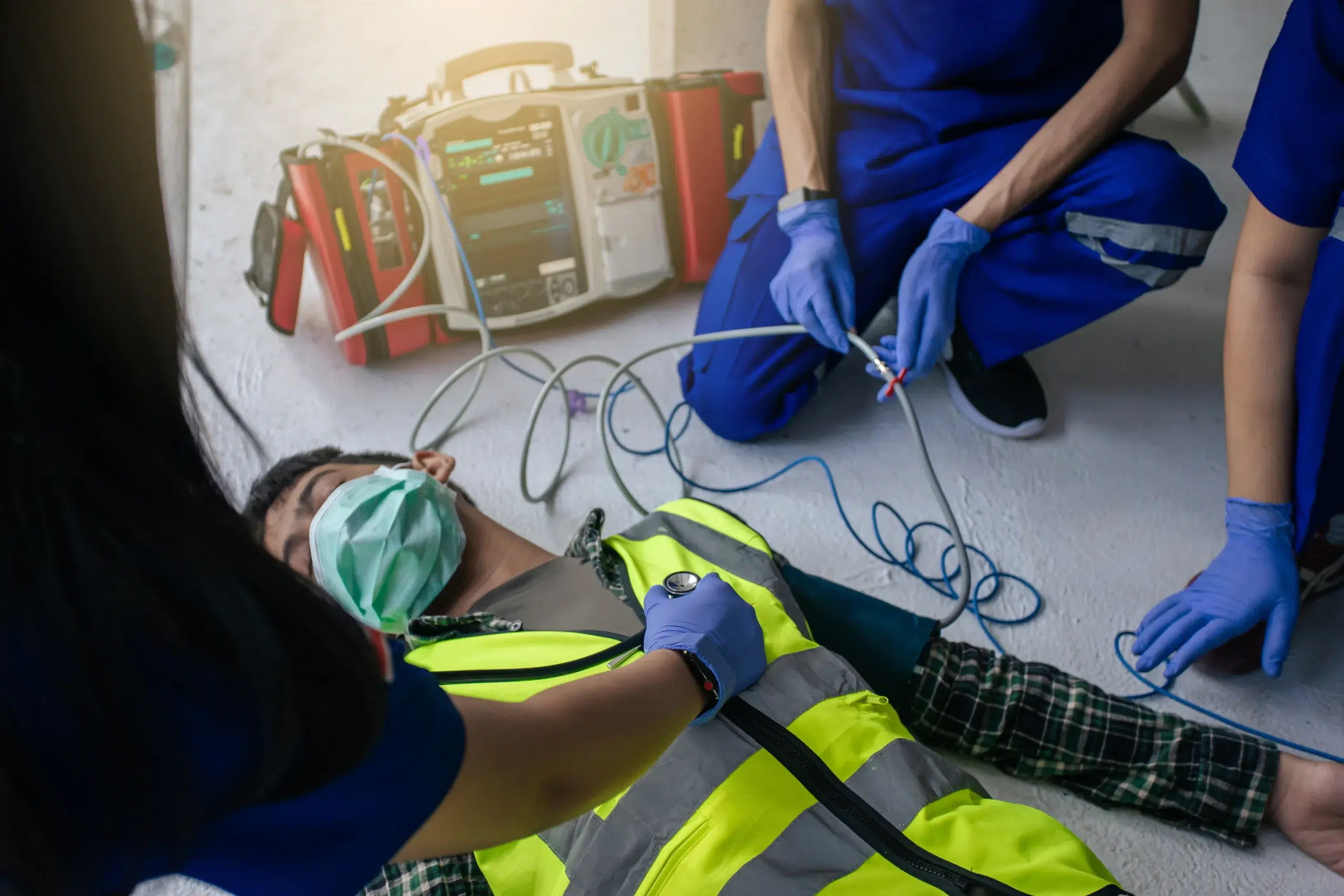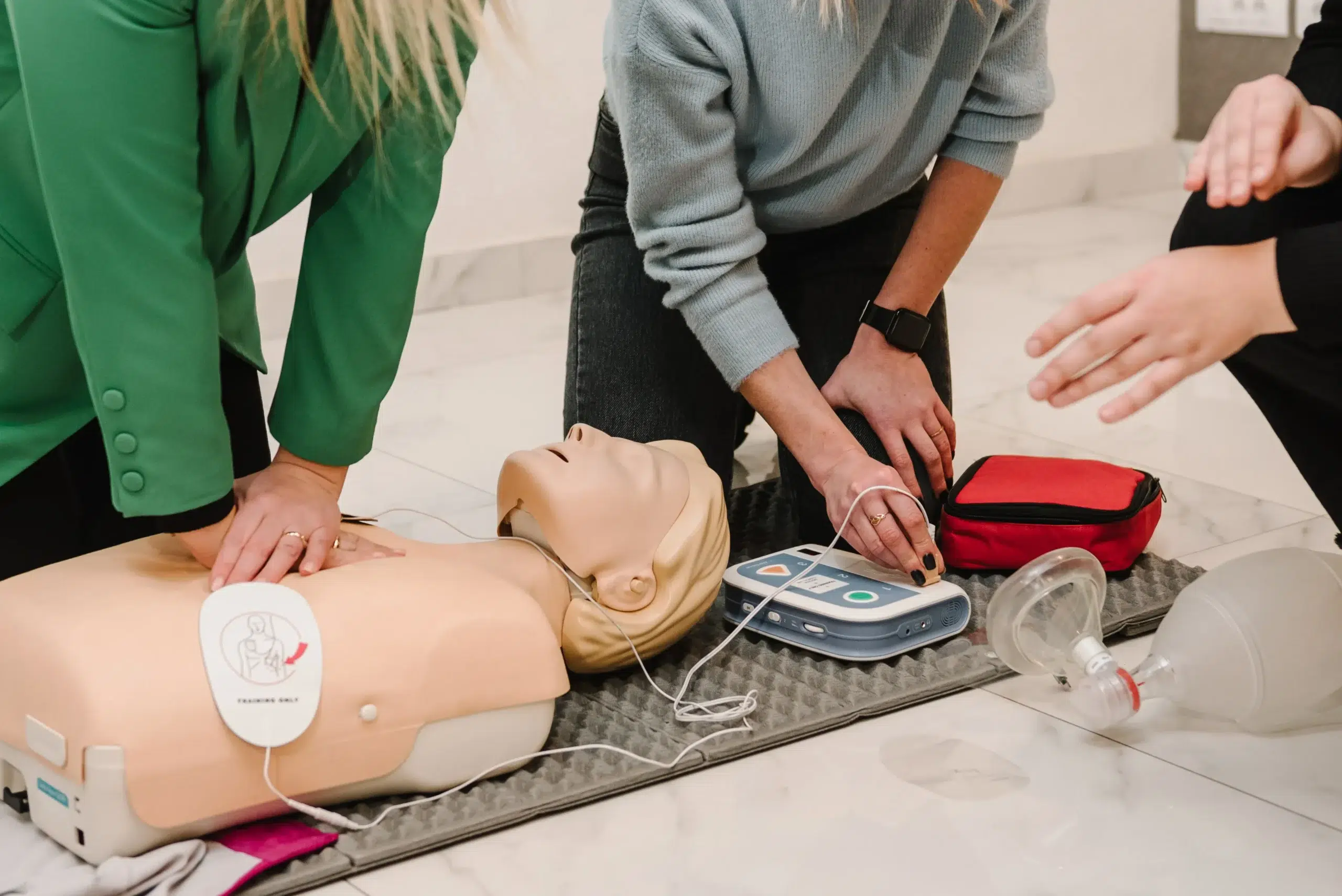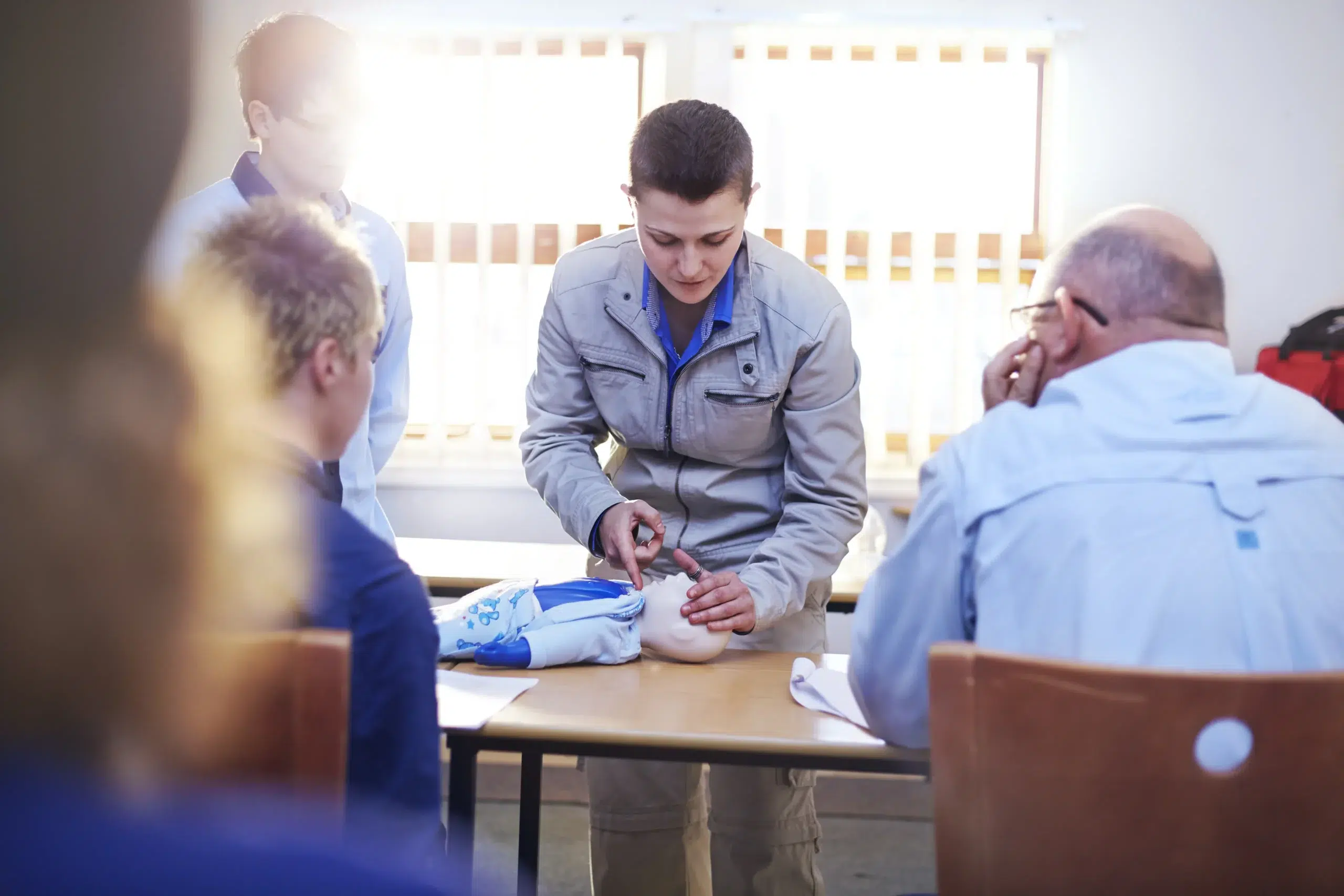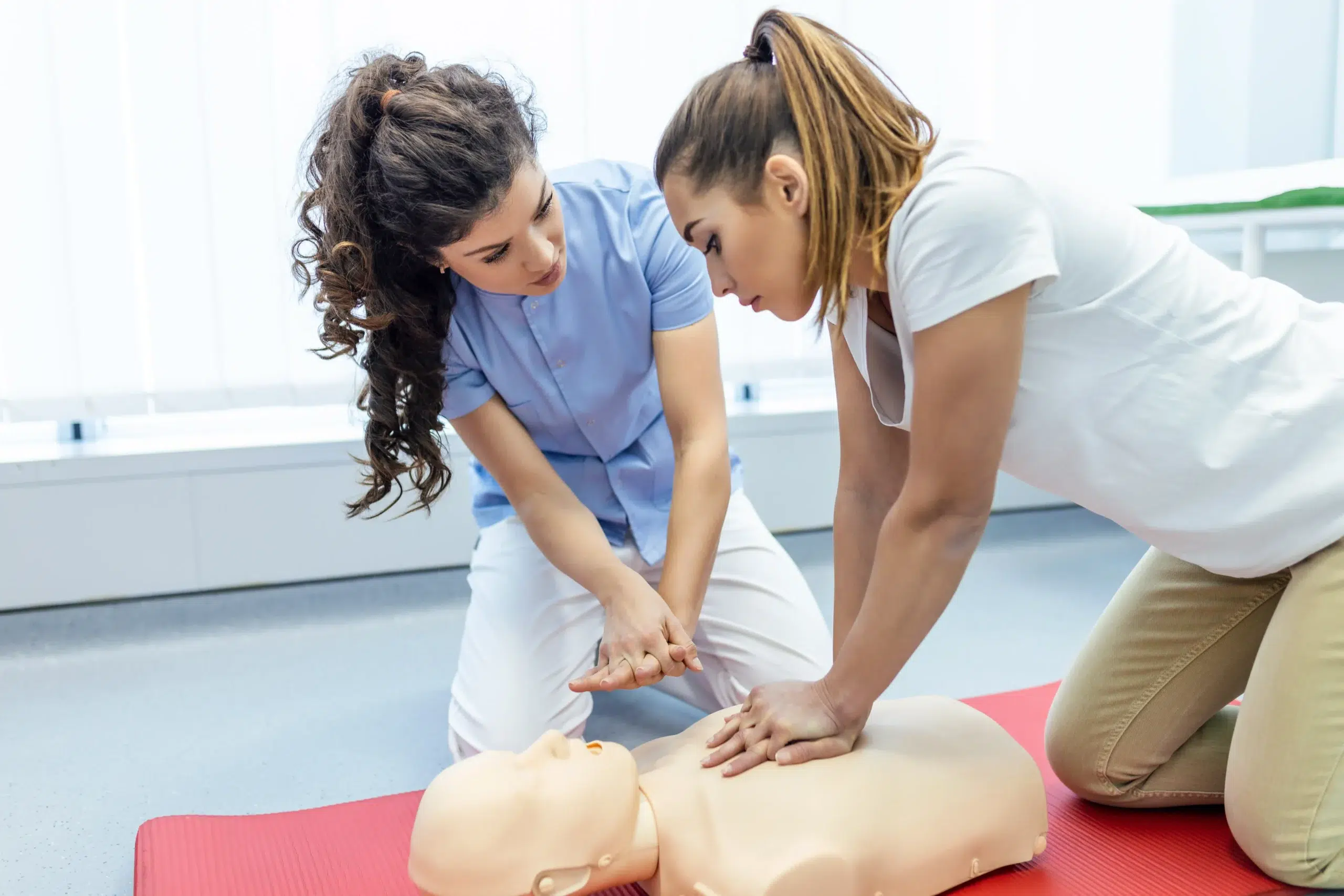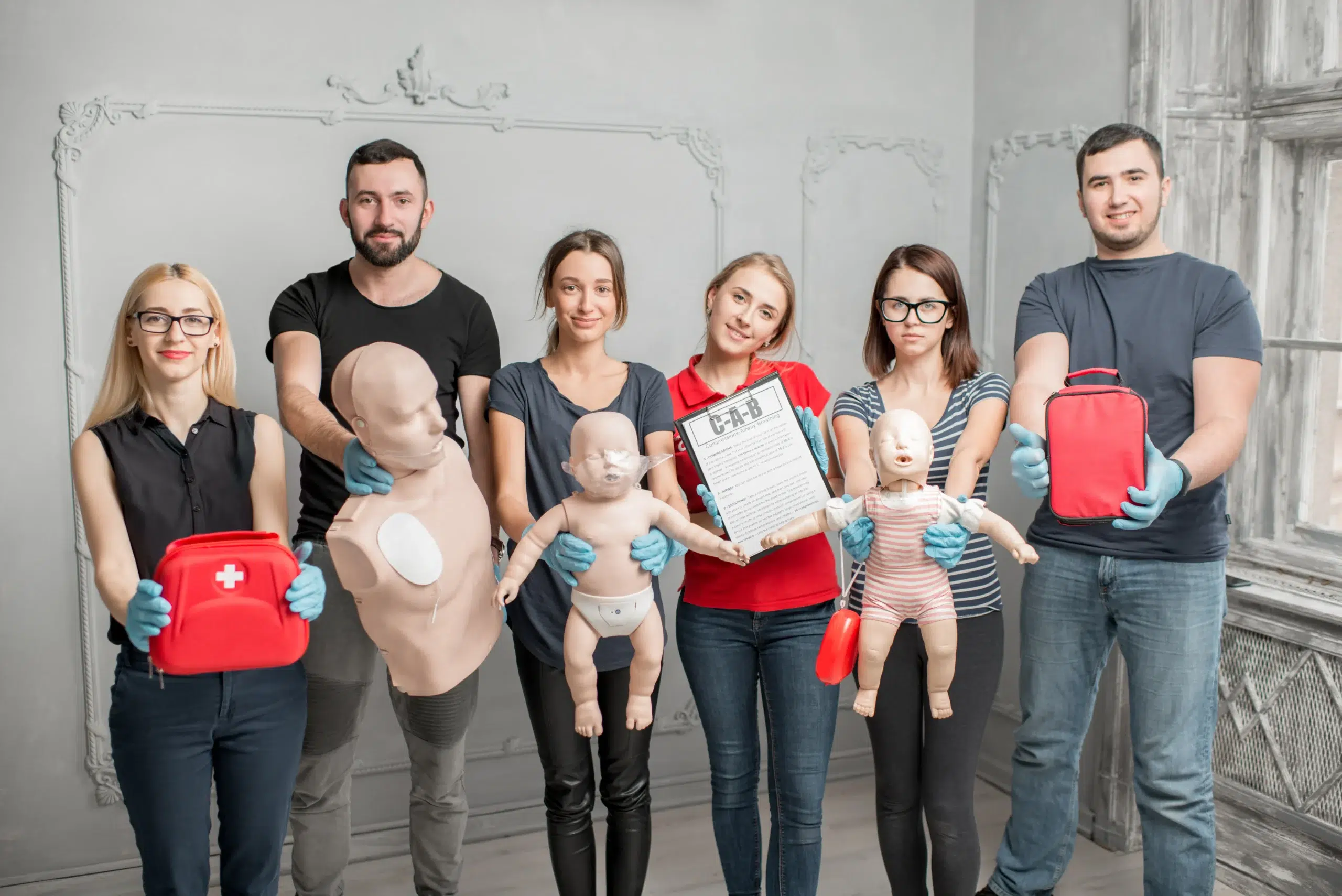Emergencies can happen anytime, anywhere. Being equipped to handle a medical crisis can save a life. If you’re in Concord and considering CPR certification, this comprehensive guide will walk you through the process. We’ll cover the different types of CPR certification available, from basic to advanced, and highlight reputable training providers like Pleasant Hill CPR Classes, known for their low-price guarantee and specialized RQI programs. We’ll also delve into the cost of CPR training, flexible learning options, and the long-term value of this essential skill. Whether you’re a healthcare professional, work with children, or simply want to be prepared for anything, this guide will help you find the right CPR certification in Concord.
Key Takeaways
- CPR certification empowers you to save lives: From basic to advanced levels, CPR training equips you with the skills to handle emergencies effectively. Explore options like BLS, ACLS, and PALS to find the right fit.
- Pleasant Hill CPR Classes offers convenient and affordable training: Located in Pleasant Hill, they serve Concord, Walnut Creek, and surrounding areas with various AHA-certified courses, including specialized RQI programs for healthcare professionals. Check out their low price guarantee.
- Stay current with your CPR skills: Renew your certification every two years and consider advanced training to keep your skills sharp and expand your knowledge. This ensures you’re always prepared to respond effectively in a crisis.
What is CPR Certification in Concord?
CPR certification in Concord gives you the skills to handle cardiac and breathing emergencies. These courses, often certified by the American Heart Association, teach chest compressions, rescue breaths, and how to use an AED. This training adheres to national standards, so you learn current, effective techniques. CPR certification is crucial for healthcare professionals and beneficial for anyone wanting to be prepared. Organizations in Concord offer various CPR certification courses, from basic CPR and First Aid to advanced certifications like BLS, ACLS, and PALS. Whether you’re a medical professional, childcare provider, or just someone who wants to help, CPR certification empowers you to act in a crisis. Pleasant Hill CPR Classes offers a convenient location for residents of Concord, Walnut Creek, and nearby areas. They specialize in the RQI program, an efficient certification process for healthcare providers. They also offer a low price guarantee on standard CPR courses. Have questions? Contact their team to learn more.
CPR Certification Courses Available
Finding the right CPR certification course depends on your individual needs and career goals. Pleasant Hill CPR Classes offers a variety of American Heart Association courses to prepare you for any situation. Let’s explore some of the key certifications available:
Basic Life Support (BLS)
The BLS course provides healthcare professionals with the skills to recognize life-threatening emergencies. You’ll learn how to perform CPR, use an AED, and relieve choking. This training emphasizes a safe, timely, and effective response in critical situations, covering essential techniques for single-rescuer and team-based resuscitation.
Advanced Cardiovascular Life Support (ACLS)
ACLS certification equips healthcare providers who lead or participate in resuscitation efforts with more advanced techniques. This course focuses on managing respiratory and cardiovascular emergencies in both in-hospital and pre-hospital settings, covering a broader range of life-saving interventions.
Pediatric Advanced Life Support (PALS)
Designed for healthcare providers treating infants and children, the PALS course focuses on the specialized skills needed for pediatric emergencies. From recognizing early signs of distress to providing appropriate interventions, PALS training prepares you to manage pediatric resuscitation.
Standard CPR and First Aid
Pleasant Hill CPR Classes also offers standard CPR and First Aid training for everyone. This course covers the fundamentals of CPR and basic first aid techniques, empowering you to respond effectively to common emergencies. Whether you’re a parent, teacher, or simply want to be prepared, this course provides valuable life-saving skills.
Top CPR Certification Providers in Concord
Finding the right CPR certification course can feel overwhelming with so many options. To help you, we’ve compiled a list of reputable providers in Concord, highlighting their strengths and offerings.
Pleasant Hill CPR Classes
Pleasant Hill CPR Classes offers a comprehensive range of certifications, from basic life support for everyday emergencies to advanced training for healthcare professionals. They emphasize customer service and offer a low price guarantee, making them a valuable resource for individuals and groups in Concord, Walnut Creek, and Pleasant Hill. For medical professionals, their specialized RQI programs provide a streamlined and efficient certification renewal process. Reach out to learn more or register for a class.
American Heart Association Training Centers
The American Heart Association (AHA) sets the standard for CPR training. Their official training centers in Concord offer various courses, including BLS, ACLS, and PALS, all adhering to the latest AHA guidelines. This ensures you receive high-quality, up-to-date instruction. Locate an AHA Training Center near you through the AHA website.
Red Cross
The Red Cross is another well-respected provider of CPR certification. They offer various courses, from basic CPR and first aid to more specialized certifications. Known for accessible training and a community focus, the Red Cross makes it easy to find a class that fits your needs. Explore their course catalog to get started.
Other Local Providers
Beyond these larger organizations, several other local providers offer CPR certification in the Concord area. Safety Training Seminars, for example, provides AHA-certified courses in nearby Pleasant Hill, covering everything from basic CPR to specialized certifications like NRP and EMSA. Researching local providers can often uncover smaller class sizes or more flexible scheduling. A quick online search can reveal additional training opportunities near you.
Cost & Value of CPR Certification
Knowing the cost of CPR training and understanding its long-term value are important factors when choosing a course. Let’s break down the typical pricing structure and highlight how Pleasant Hill CPR Classes offers affordable options without compromising quality.
Average Course Pricing
CPR course fees vary based on the type of certification and the training provider. Basic CPR/AED courses typically start around $35. More advanced certifications, such as BLS, ACLS, and PALS, generally come with higher fees because of their specialized content and longer class times. These advanced courses are essential for healthcare professionals and those seeking specialized resuscitation skills. For those needing BLS certification or recertification, check out our BLS course page for more details.
Discounts and Group Rates
Many CPR training providers, including Pleasant Hill CPR Classes, offer discounts for group bookings. This can be a cost-effective option for workplaces, community groups, or families learning together. For instance, an employer might book a two-hour CPR/AED class for a group of eight employees and receive a discounted rate compared to individual registrations. To explore group discounts and find the best fit for your team, reach out to us.
Pleasant Hill CPR Classes’ Low Price Guarantee
Pleasant Hill CPR Classes is committed to providing high-quality training at competitive prices. Our low-price guarantee ensures you receive excellent value for your investment. We believe that cost shouldn’t prevent anyone from learning these essential life-saving skills.
Long-Term Certification Benefits
Earning your CPR certification is an investment that extends far beyond the initial course fee. The skills you acquire, such as those offered through our RQI program, empower you to make a real difference in critical situations. Maintaining your certification demonstrates your commitment to providing effective care and can strengthen your professional qualifications. The confidence and knowledge you gain will be invaluable throughout your life.
What to Expect in a CPR Course
Getting CPR certified is a rewarding experience, and knowing what to expect beforehand can make you feel more prepared. Here’s a breakdown of a typical CPR course:
Course Duration and Content
CPR courses vary in length depending on the material covered. They can range from a couple of hours for basic CPR to over five hours for more advanced courses like Basic Life Support (BLS). A BLS certification is typically valid for two years. You’ll learn essential lifesaving skills, including recognizing the signs of a cardiac arrest, performing chest compressions, giving rescue breaths, and using an automated external defibrillator (AED).
Hands-on Practice and Skills Assessment
CPR classes aren’t just lectures. Hands-on practice is a key component, building your confidence and proficiency. A typical class involves learning the theory, watching demonstrations, and then practicing the skills yourself. You’ll work with mannequins to simulate real-life scenarios and receive feedback from your instructor. To earn your CPR certification, you’ll need to demonstrate competency in these skills through a practical assessment.
Certification Process and Validity
Once you successfully complete the course and skills assessment, you’ll receive a digital certificate, often valid for two years. This certificate verifies your training and can be accessed online. The American Heart Association (AHA) certification is the same for both BLS provider and BLS renewal courses. Remember to keep track of your certification expiration date and renew your training to maintain your lifesaving skills.
Choose the Right CPR Course
Finding the right CPR course means considering your specific needs and comparing what different courses offer. Think about your professional requirements, the course content, scheduling flexibility, and the training center’s accreditation.
Professional Requirements
Different professions have different CPR certification requirements. Healthcare providers, for instance, often need a Basic Life Support (BLS) certification, covering core skills like CPR, using an AED, and relieving choking. Pleasant Hill CPR Classes offers BLS certification designed for healthcare professionals, preparing them to handle various life-threatening emergencies. If you’re unsure what certification level you need, it’s always a good idea to check with your employer or professional association.
Course Content and Instructor Qualifications
Look for courses that follow American Heart Association (AHA) guidelines, the gold standard in CPR training. A good course should cover essential techniques, offer plenty of hands-on practice, and be led by certified instructors. Pleasant Hill CPR Classes provides a range of AHA-certified courses, ensuring high-quality instruction and recognized certification.
Scheduling Options and Flexibility
It can be tough to fit a CPR class into a busy schedule. Look for training centers with flexible options, like weekday and weekend classes, evening sessions, and online or blended learning. This way, you can choose a course that works for you. Contact Pleasant Hill CPR Classes to discuss your scheduling needs and find the best fit.
Accreditation and Recognition
Make sure the training center you choose is accredited by a reputable organization like the AHA. This confirms the course meets established standards and that your certification will be widely accepted. Pleasant Hill CPR Classes is an AHA-authorized training site, offering credible certifications in various areas, including CPR, First Aid, BLS, ACLS, and PALS. Choosing an accredited provider shows you’ve invested in high-quality training, and makes your certification more valuable.
Register for a CPR Course in Concord
Finding the right CPR class in Concord doesn’t have to be complicated. With various options available, you can find a course that fits your schedule and learning style. Whether you prefer traditional classroom learning or the flexibility of online courses, Concord offers a range of choices. Pleasant Hill CPR Classes, conveniently located near Concord, offers a variety of CPR and first aid certification courses.
Online and In-person Registration
Many training centers in Concord provide several learning formats. In-person classes offer hands-on instruction and direct interaction with instructors. For those with busy schedules, online learning provides a convenient alternative, allowing you to complete the coursework at your own pace. Blended learning, which combines online modules with in-person skills sessions, offers a balance of flexibility and practical training. Pleasant Hill CPR Classes offers various courses, including BLS certification, ACLS, and PALS. They provide flexible scheduling to accommodate different needs.
Required Materials and Prerequisites
Before registering for a CPR course, it’s helpful to understand the requirements. While some courses, like standard CPR and First Aid, may not have specific prerequisites, advanced courses like BLS for Healthcare Providers often require participants to have some background knowledge. For example, the BLS Healthcare Provider course focuses on equipping healthcare professionals with the skills to recognize life-threatening emergencies, administer CPR, use an AED, and relieve choking. Check with your chosen provider to confirm any prerequisites or required materials for your selected course. Pleasant Hill CPR classes offers a low price guarantee, so you can be confident you’re getting a good value. Contact Pleasant Hill CPR Classes directly for more information.
Maintain Your CPR Certification
Keeping your CPR skills sharp is essential, especially if you work in healthcare, childcare, or other fields where these skills are regularly needed. This section explains how to stay current with your certification.
Renewal Requirements and Process
CPR certifications, such as the American Heart Association BLS Provider course, are typically valid for two years. This means you’ll need to renew your BLS certification to maintain your qualifications and stay informed about the latest CPR guidelines. Renewal courses often cover similar material as the initial certification, providing a thorough refresher. The cost of renewal depends on the training provider and whether you choose online, in-person, or blended learning. For competitive pricing, check out Pleasant Hill CPR Classes’ low price guarantee. After completing your renewal course, you’ll receive a digital certificate, giving you easy access to your training history.
Continuing Education Opportunities
Beyond simply renewing your certification, ongoing CPR training offers valuable benefits. It reinforces the importance of CPR in emergencies and helps you maintain your skills and confidence. Consider expanding your knowledge with courses like ACLS (Advanced Cardiovascular Life Support) or PALS (Pediatric Advanced Life Support). These advanced certifications can open up new career opportunities and equip you with more comprehensive life-saving techniques. Pleasant Hill CPR Classes offers a variety of AHA-certified courses to fit different learning styles and schedules. By staying proactive with your CPR education, you’ll be prepared to handle emergencies effectively.
Why CPR Certification Matters
CPR certification empowers individuals to respond effectively during medical emergencies, potentially saving lives. Its importance spans various professions and the general public. Learning CPR provides the confidence and skills to act quickly and decisively when every second counts.
Healthcare Providers
For healthcare providers, CPR certification isn’t just important—it’s essential. Professionals like doctors and nurses regularly encounter situations requiring immediate intervention. BLS certification equips them with the skills to perform CPR, use an AED, and manage choking incidents. This training ensures they can deliver timely and appropriate care, directly impacting patient outcomes. Pleasant Hill CPR Classes offers comprehensive BLS training designed for healthcare professionals in Concord and surrounding areas.
Childcare Workers
Childcare providers are entrusted with the well-being of children, making CPR certification crucial. Emergencies involving choking or respiratory distress can occur, and having the skills to respond can make all the difference. Specialized CPR courses for childcare providers in California cover the specific needs of infants and children, giving caregivers the confidence to act swiftly and appropriately.
First Responders
First responders, such as EMTs and paramedics, are often the first on the scene of an emergency. Their ability to administer CPR immediately can significantly improve a person’s chances of survival. Comprehensive CPR training prepares first responders to manage various emergency scenarios, both in and out of the hospital setting. This training emphasizes effective resuscitation techniques and teamwork, vital for saving lives.
Fitness Professionals
Fitness professionals work with individuals engaged in physical activity, where the risk of sudden cardiac events can be higher. Holding a current CPR certification demonstrates a commitment to client safety and preparedness for emergencies. It allows trainers and instructors to respond effectively if a medical crisis arises, providing immediate care until professional medical help arrives. Contact us to learn more about CPR training options.
General Public
Even without a professional requirement, CPR certification is a valuable skill. Knowing CPR can empower you to assist family members, friends, or even strangers during a medical emergency. It provides the skills and confidence to act quickly and potentially save a life before professional help arrives. Pleasant Hill CPR Classes encourages everyone in the community to consider getting certified, emphasizing the importance of widespread CPR knowledge.
Flexible Learning Options in Concord
Finding the right CPR class often comes down to scheduling and learning style. Luckily, Concord offers a variety of options to fit your needs. Whether you prefer hands-on, in-person training or the convenience of online learning, you can find a course that works for you.
In-Person Classes
Many students thrive in a traditional classroom setting. In-person CPR classes provide hands-on training with certified instructors who can offer personalized feedback and answer questions in real time. This face-to-face interaction can be especially helpful for mastering essential skills like chest compressions and rescue breaths. These courses cover a range of certifications, from basic CPR and first aid to more advanced certifications like ACLS and PALS.
Online and Blended Learning
If your schedule is packed or you prefer learning at your own pace, online and blended learning options might be a better fit. Online courses allow you to complete the coursework from anywhere with an internet connection. Blended learning combines online modules with in-person skills sessions, offering a balance of flexibility and hands-on practice.
RQI Programs for Healthcare Professionals
For healthcare professionals in Pleasant Hill, Concord, and the surrounding areas, RQI programs offer a streamlined path to certification. RQI (Resuscitation Quality Improvement) uses innovative technology and simulation-based training to reinforce skills and improve competency. This approach is particularly effective for maintaining certification and staying up-to-date with the latest guidelines. Pleasant Hill CPR Classes specializes in these programs, offering a convenient and efficient way for medical professionals to earn their American Heart Association BLS, ACLS, and PALS certifications.
Related Articles
- American Red Cross Concord: Services & Volunteering – Pleasant Hill CPR Classes
- AHA Certification in Concord: Your Complete Guide – Pleasant Hill CPR Classes
- ACLS Courses in Concord: Your Complete Guide – Pleasant Hill CPR Classes
- BLS Renewal in Concord: Your Complete Guide – Pleasant Hill CPR Classes
- First-Aid Training in Walnut Creek: A Complete Guide – Pleasant Hill CPR Classes
Frequently Asked Questions
How much does CPR certification cost?
CPR certification costs vary depending on the type of course and the training provider. Basic CPR courses are generally less expensive than advanced certifications like BLS, ACLS, or PALS. Many providers offer discounts for group registrations and Pleasant Hill CPR Classes has a low-price guarantee.
What’s the difference between BLS and CPR certification?
CPR is the core skill within BLS (Basic Life Support). BLS certification encompasses CPR but also includes training in using an AED and relieving choking. It’s designed for healthcare providers and those needing a broader skillset for emergency response. Standard CPR certification focuses primarily on CPR techniques.
How long is a CPR class?
The length of a CPR class depends on the level of certification. Basic CPR courses can be completed in a few hours, while more advanced courses like BLS may take a full day. Check with your chosen provider for specific course durations.
How do I renew my CPR certification?
Most CPR certifications are valid for two years. You’ll need to take a renewal course to maintain your certification and stay up-to-date with the latest guidelines. Many providers offer renewal courses, often with flexible scheduling options like online or blended learning.
Why should I get CPR certified if I’m not a healthcare professional?
Knowing CPR can empower you to help in a medical emergency, even if you’re not a healthcare professional. You could potentially save the life of a family member, friend, or stranger. It’s a valuable life skill that provides confidence and the ability to act quickly when every second counts.
